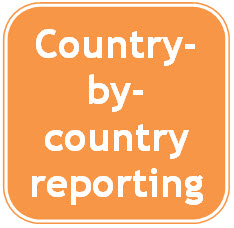 The International Accounting Standards Board discussion paper on the Extractive Industry — on which the comment period has just closed — included a whole chapter dedicated to the demand of Publish What You Pay for country-by-country disclosure of key information on revenue streams paid by multinational corporations engaged in that sector to the individual governments that host their activities and supporting accounting data to allow objective appraisal of that information within a meaningful accounting context. This was the first occasion when opportunity for this debate has arisen because of an initiative of the International Accounting Standards Board and it did, as a result attract considerable interest.
The International Accounting Standards Board discussion paper on the Extractive Industry — on which the comment period has just closed — included a whole chapter dedicated to the demand of Publish What You Pay for country-by-country disclosure of key information on revenue streams paid by multinational corporations engaged in that sector to the individual governments that host their activities and supporting accounting data to allow objective appraisal of that information within a meaningful accounting context. This was the first occasion when opportunity for this debate has arisen because of an initiative of the International Accounting Standards Board and it did, as a result attract considerable interest.
Country-by-country reporting is a key Task Force on Financial Integrity and Economic Development demand — and not just for the extractive industries. As my Task Force paper on this subject shows, country-by-country reporting can have universal benefit, and unsurprisingly some of the Task Force members who have submitted comment on the paper — such as the Tax Justice Network and Tax Research LLP — have made this point in their submissions, which along with all other comment letters are available for on-line inspection on the IFRS website.
The number of NGOs submitting comment has been heartening. Across many countries it is clear that there is real support for country-by-country reporting.
It is also clear that this support is not universal. For example, international accountants at Deloitte seem intent on opposing any additional disclosure of any sort, saying “we have significant concerns about the nature and extent of the disclosures proposed, in particular the level of disaggregation required, the need for sensitivity analyses and the cost of preparing the proposed disclosures.” It is sometimes hard to understand what information accountants would ever wish to place in the public domain if given free choice on the matter. With regard to the Publish What You Pay proposals their response was blunt, saying “We do not agree with this proposal. We believe these proposals extend the use of IFRS financial statements beyond its traditional use by the capital providers to a wider group of stakeholders.”
This is an odd argument to make: the International Accounting Standards Board’s ultimate constitution makes clear it has obligation to all such stakeholders and the recent G20 communiqu?© said:
We expressed the importance we place in achieving a single set of high quality, global accounting standards and urged the International Accounting Standards Board and the Financial Accounting Standards Board to redouble their efforts to that end. We encouraged the International Accounting Standards Board to further improve involvement of stakeholders.
Deloitte are obviously out of step with the world.
So too are KPMG, although with a little more reserve. They say:
The proposals put forward in the Discussion Paper appear to go beyond this proposed objective of financial reporting. Accordingly, before proceeding with a requirement for entities in the extractive activities to make such disclosures, we believe that the Board should engage in a wider consultation on a disclosure framework for general purpose financial reporting. In the event that the Board decides to proceed in advance of a wider consultation, then we believe that the cost benefit balance of such disclosures should be considered based on input from users and preparers.
I do, of course, disagree with them, and yet cannot disagree with the thrust of their argument — that broader discussion on a wider framework for financial reporting of which (I think) country-by-country reporting would be a part is desirable.
And not all oil companies are wholly opposed. Shell says, for example:
In summary, whilst we support in principle the disclosure of revenues paid to governments, we do not believe that the inclusion of requirements in an IFRS is the way to achieve this.
Space precludes me stating why I disagree — but the Tax Research LLP submission makes clear in some depth why this is the case.
But, on the other hand, there are surprising and welcome supporters for the Publish What You Pay proposal, of which perhaps the most notable is the World Bank, who are unambiguous in their support. They state:
In summary, as a participant in global capital markets, we believe that incorporation of all the country-by-country reporting disclosure proposals of PWYP into a future International Financial Reporting Standards are consistent with the IASCF Constitution and Framework, serve the needs of financial statement users who are capital providers, and meet the cost/benefit test. Further as a development organisation we think the additional benefits for a broader set of stakeholders provide a two-fold opportunity for the Board and the Trustees to serve other users making economic decisions and the public interest.
That is a very welcome endorsement of our objective.
The time for country-by-country reporting is approaching — whether accountants like it or not.
Note: Originally posted on the blog of the Task Force on Financial Integrity and Economic Development
Thanks for reading this post.
You can share this post on social media of your choice by clicking these icons:
You can subscribe to this blog's daily email here.
And if you would like to support this blog you can, here:


